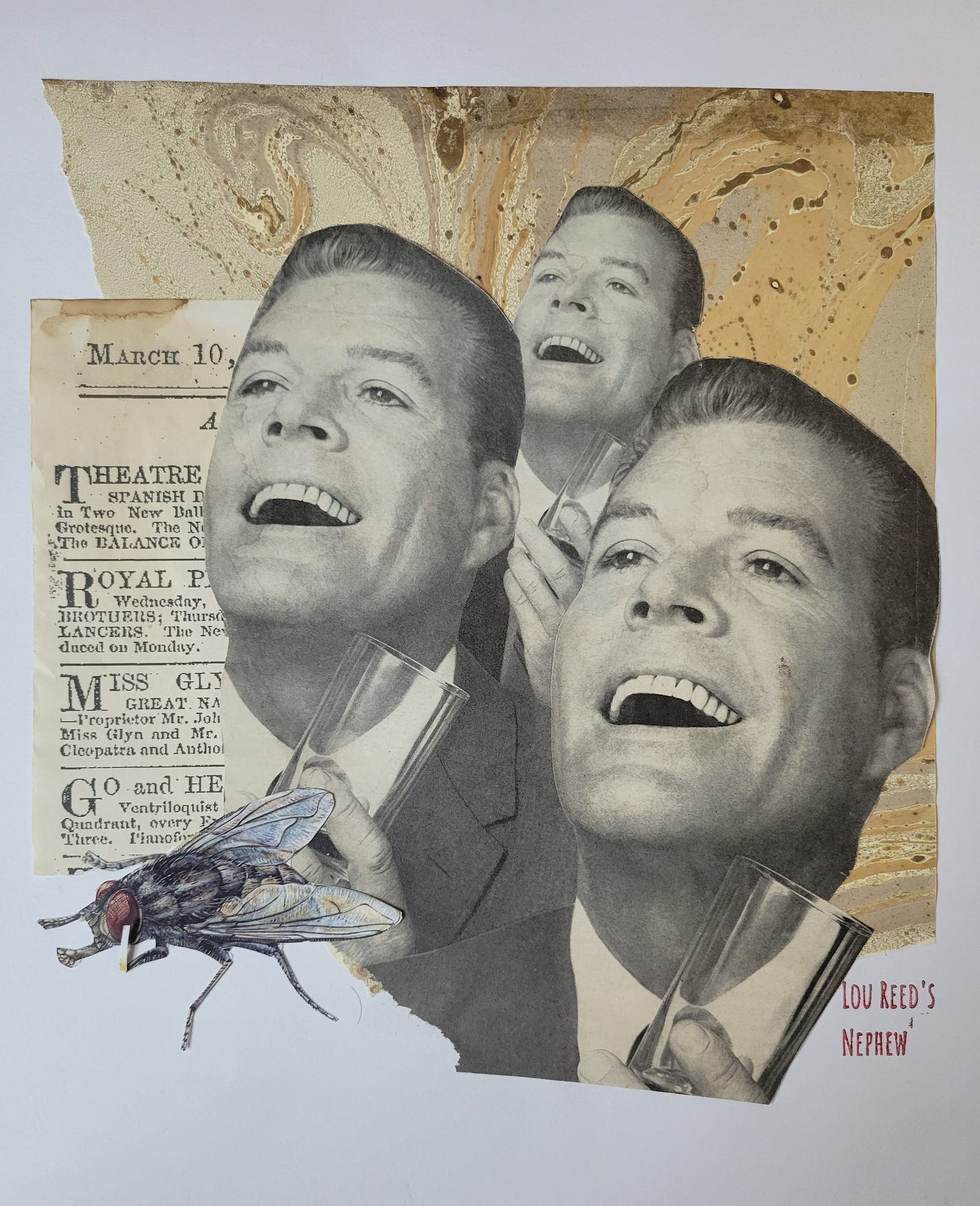E22. Lou Reed's Nephew on Aspiration
“Everywhere you look, brands want to be people and people want to be brands.”
“I went to a workshop yesterday.”
I’d noted Lou Reed’s Nephew’s absence, but never dreamed he’d been at something as conventional as a workshop.
It seemed out of character.
“It seems out of character,” I said.
“You clearly don’t understand my character,” he said. “It was research.”
“What was the work of this workshop?”
“‘Branding the Brand Named Me’.”
“This is making more sense. Everywhere you look, brands want to be people and people want to be brands.”
“That’s because companies want to appear moral, and people want to be relieved of their morality. It’s a fair exchange.”
I thought about this for a moment and couldn’t disagree.
“What did you learn at this workshop,” I asked.
“I learned that I’m a ‘thought concierge,’” he said, mocking this diagnosis with air quotes.
“I’m not surprised. How was this knowledge imparted?”
“Privately and with touching earnestness. Like a TM mantra. We were sworn never to share our ‘brandway’ with anyone, so naturally I couldn’t wait to share it with you.”
“You were sworn to secrecy to prevent you from discovering you are all thought concierges, I suppose?”
“Who pays $299 to find out they’re not a thought concierge?”
“You paid $299?”
“No. I talked my way in, but I would have. The research was invaluable.”
“What did you find out?”
“To hand out brandways privately, for starters.”
“You would’ve thought of that.”
“Maybe. But I wouldn’t have learned what an inexhaustible resource aspiration is.”
“You’ll have to explain.”
“If you sell checkbook covers, let’s say, your customer base is restricted to people who have checking accounts. But if you sell aspiration, your customer base expands to people who merely hope to have checking accounts. To everyone, in other words.”
“They confessed this openly?”
“It was implied. What’s better, people without checkbooks can’t even tell if your checkbook covers work.”
“Who sells checkbook covers? Do you even know what that is? And how could one not work?”
“I’ve seen one or two. That woman with the child—Andrea—she had one. It had dancing skeletons on it.”
He laughed hysterically. I was concerned he might fall out of his chair.
“Get it?” he choked.
“Not really.”
He composed himself and prepared to walk me through it.
“Suppose your lifelong dream is to be a scrimshander. A person who makes scrimshaw objects.”
“I think scrimshaw is illegal.”
“But let’s suppose you always wanted to be a scrimshander.”
“I could never be a scrimshander. I don’t have the patience, I’m not a pirate, and I think it’s illegal.”
“Aha. True. But why should that keep me from charging you to tell you that maybe you could become a scrimshander?”
He leaned back in his chair, satisfied.
“You’re going to take my $299 and lie to me?”
“You’re not going to give me $299 to tell you the truth, are you?”
“…”
“And if I only charged people who could at some point really be professional scrimshanders, I’d never make a living.”
“Market’s too small.”
“Way too small. Scrimshaw is illegal!”
“Aspiration is like magic, then?”
“It is like magic,” Lou Reed’s Nephew gushed. “Don’t tell anyone but I think you might be a thought concierge, too.”



